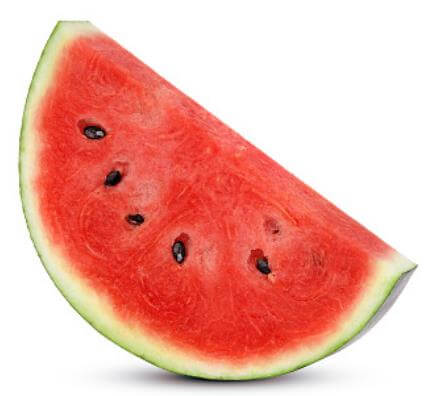
One of the simplest and most effective strategies for maintaining a healthy diet is to incorporate fruits that are low in sugar and carbohydrates. A diet rich in fruits has been associated with numerous health benefits, such as a reduced risk of diabetes and better weight management.
While fruits are plentiful, certain varieties may not be suitable for individuals with specific health conditions due to their sugar and carbohydrate levels. Are you curious about which fruits contain minimal or no carbs and sugars? If so, you’re in the right place! This article will explore this topic and introduce you to twelve such fruits that are easily accessible.
Contents
Best Fruits with Low Sugar and Carbs
How to Add Low Sugar and Carb Fruits to Your Diet
Conclusion
Frequently Asked Questions
References
Fruits are naturally nutrient-dense and free from additives. Similar to other plant-based foods, they deliver vital nutrients, including potassium, vitamin C, and dietary fiber.
Many fruits also provide significant amounts of protein, healthy fats, and other essential nutrients, making them a crucial part of a balanced diet. As carbohydrate content varies among different fruits, selecting the right ones in appropriate portions allows you to enjoy their flavors without exceeding your daily carbohydrate intake.
Here are twelve fruits that are characterized by their very low sugar and carbohydrate content.
1. Watermelon

This beloved summer fruit boasts a low glycemic index, containing just 7.55 grams of carbohydrates per 100 grams. Due to its low fiber content, most of these carbohydrates are easily absorbed.
Watermelon is also high in vitamin A and has a substantial water content, helping you feel satiated while keeping calorie intake low.
2. Avocado
Nutritionistsdiet plans
This creamy fruit is considered a complete food and can be used in a variety of dishes. Options like guacamole and avocado toast are delicious ways to enjoy this nutrient-rich fruit. Avocados are packed with fiber, vitamins A, C, E, K, and B6, and they also provide essential minerals such as potassium and copper.
3. Cantaloupe
This sweet orange melon is a popular summer treat, containing only 8.16 grams of carbohydrates per 100 grams. Cantaloupe and other melons are classified as low-fructose fruits, making them versatile additions to dishes like tuna salad.
Blend cantaloupe with lime, mint, and water for a refreshing agua fresca. Research shows that cantaloupe is rich in vitamin C, which may exhibit anti-inflammatory, antioxidant, and potential anti-cancer properties that can help in disease prevention.
4. Peach
Peaches are juicy and sweet, surprisingly offering a low carbohydrate count. This delicious fruit not only tastes great but also pairs well with various dishes, from desserts to smoothies.
Rich in phytochemicals (antioxidants) that contribute to their vibrant color, peaches can significantly aid in preserving eye health. Consuming one to two servings of fresh peaches weekly, alongside other nutrient-rich fruits and vegetables, can help protect against glaucoma.
5. Kiwi
Despite being one of the sweetest fruits, kiwis can fit into a low-carb and low-sugar diet. Each kiwi contains just 6 grams of sugar.
Packed with nutrients like vitamin E, antioxidants, and fiber, kiwis can help lower triglycerides, enhance immune function, and reduce the likelihood of colds and flu. Their mild flavor makes them a fantastic addition to fruit salads, smoothies, or even enjoyed raw with the skin on.
6. Cucumbers
Cucumberssalads
Most of the nutrients are found in the cucumber's skin; therefore, it is recommended to eat them unpeeled. Opt for varieties like Persian cucumbers, which have thinner skins, if you're looking for a low-carb option.
7. Lemons
Lemonsan excellent low-carb fruit choice
Lemon juice can enhance your weight loss efforts by providing a vitamin C boost that supports the immune system. This powerful antioxidant combats free radicals associated with aging and chronic diseases while also promoting digestive health.
8. Grapefruit
Grapefruit is another fiber-rich fruit that is low in carbohydrates and sugar while being high in vitamin C. Its fat-free profile makes it a staple in the meal plans of many dietitians and nutritionists.
Fresh grapefruit can be enjoyed on its own or in a fruit salad, depending on your preference for sweetness. The potassium content in grapefruit can help maintain proper fluid balance and sodium levels in the body, potentially lowering blood pressure and reducing the risk of heart disease and stroke.
9. Tomatoes
Though commonly perceived as a vegetable, tomatoes are technically fruits containing only 3.89 grams of carbohydrates per 100 grams. They are rich in vitamin A and are often recommended as a superfood for individuals managing diabetes. Thanks to the presence of lycopene, tomatoes possess anti-cancer properties and promote heart health.
Versatile in nature, tomatoes can be enjoyed raw, roasted, or tossed into salads, enhancing flavor while potentially lowering the risk of stroke.
10. Strawberries
Strawberries are an excellent choice for those seeking low-carb and sugar-free fruit options. They are packed with antioxidants, vitamin C, and fiber, while maintaining a low carbohydrate content.
With just 5 grams of sugar, 2 grams of protein, and around 5.5 grams of fiber per 100 grams, strawberries can help lower the risk of various chronic diseases. Regular consumption may improve heart health, stabilize blood sugar levels, and even reduce cancer risk.
11. Guavas
Known for their high fiber content, guavas have been shown to assist in diabetes management and provide relief from constipation, thanks to their rich antioxidant profile.
Notably low in sugar and carbohydrates, guavas contain more vitamin C than oranges and may even reduce the risk of developing Type 2 diabetes—making them a fantastic choice for anyone on a low-sugar diet.






































